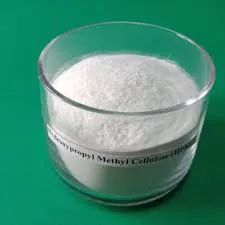
Nov . 11, 2024 07:00 Back to list
hpmc powder
HPMC Powder An Overview of Its Applications and Benefits
Hydroxypropyl Methylcellulose (HPMC) powder is a versatile compound widely used in various industries due to its unique properties. A cellulose derivative, HPMC is formed by the etherification of cellulose, which is derived from natural plant fibers. Its chemical modification leads to a product that exhibits exceptional solubility, film-forming capabilities, and thickening properties, making it a preferred ingredient in numerous applications. This article explores the characteristics, benefits, and applications of HPMC powder, highlighting its significance in various sectors.
Chemical Properties and Composition
HPMC powder is a white, odorless, and tasteless powder that readily dissolves in water to form a viscous solution. The degree of hydroxypropyl and methyl substitution can be manipulated during its production, allowing manufacturers to tailor its properties for specific applications. Generally, HPMC is classified by its viscosity grades, which range from low to high viscosity, indicating the concentration of HPMC in solution and its effectiveness as a thickening agent. The chemical structure of HPMC provides it with thermal stability and resistance to various chemicals, which further contributes to its versatility in applications.
Applications in Construction
One of the most significant uses of HPMC powder is in the construction industry, particularly in cement and mortar formulations. HPMC serves as a thickening agent and improves the workability and adhesion of cement-based products. It enhances the water retention of mortars, allowing for better binding and reducing cracking during the curing process. Additionally, HPMC contributes to improved open time, ensuring that construction materials remain workable for extended periods. This is particularly useful in hot and dry conditions, where rapid evaporation can compromise product effectiveness.
Role in Pharmaceuticals
In the pharmaceutical sector, HPMC powder is widely used as an excipient in the formulation of tablets, capsules, and other drug delivery systems. Its ability to form a gel when in contact with water makes it an ideal candidate for controlled-release formulations, allowing for the gradual release of active ingredients over time. Furthermore, HPMC is utilized in the production of coatings for tablets, enhancing their stability and improving patient compliance by masking unpleasant tastes or odors. Its biocompatibility adds to its appeal, ensuring that it does not adversely affect drug efficacy or safety.
hpmc powder

Food Industry Utilization
HPMC powder finds applications in the food industry as a food additive. It acts as a thickener, stabilizer, and emulsifier in various products, including sauces, dressings, and dairy items. Its ability to retain moisture and improve texture makes it a valuable ingredient in processed foods. Moreover, HPMC is a vegetarian alternative to gelatin, catering to the needs of vegan and vegetarian consumers. By providing similar functional benefits, it enhances the overall quality of food products without compromising dietary preferences.
Benefits in Cosmetics
In the cosmetics industry, HPMC powder is utilized for its thickening and stabilizing properties in formulations like creams, lotions, and gels. It improves the texture and application of cosmetics, providing a smooth and consistent feel. HPMC also acts as a binding agent for powders, ensuring product uniformity and stability. Its moisture-retaining properties contribute to skin hydration, making it a popular ingredient in moisturizers and other skincare products.
Environmental Considerations
As consumers become increasingly aware of environmental issues, the use of HPMC powder aligns with the demand for eco-friendly and sustainable products. Derived from natural cellulose fibers, HPMC is biodegradable and poses minimal risks to the environment. Its versatility across various industries supports the creation of products that cater to environmentally conscious consumers, reinforcing the importance of sustainable practices in manufacturing.
Conclusion
In conclusion, HPMC powder stands out as an essential ingredient across multiple industries, from construction and pharmaceuticals to food and cosmetics. Its unique properties—such as thickening, water retention, and biocompatibility—make it an invaluable resource for enhancing product quality and performance. As industries continue to prioritize innovation and sustainability, HPMC's role is poised to grow, ensuring that it remains a key player in future developments. Its applications not only cater to industrial needs but also align with consumer demands for safe and environmentally friendly products, solidifying HPMC powder’s importance in modern manufacturing.
-
Unlocking the Benefits of HPMC Products: A Gateway to Versatile Applications
NewsAug.07,2025
-
Unleashing the Potential of HPMC Ashland: A Comprehensive Look
NewsAug.07,2025
-
Tile Bonding Cellulose: The Key to Superior Adhesion and Durability
NewsAug.07,2025
-
Hydroxypropyl Methylcellulose Powder: The Versatile Component in Modern Pharmaceuticals
NewsAug.07,2025
-
Hydroxyethyl Cellulose: The Versatile Solution for Various Industries
NewsAug.07,2025
-
Hydroxyethyl Cellulose (HEC): The Versatile Polymer for Various Applications
NewsAug.07,2025







